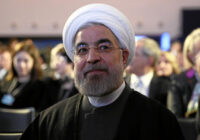Mobile technology offers extensive help on various forms of social and economic development.
Technological innovation and Information Communication Technologies (ICTs) represent a way for developing world nations to foster economic development, improve levels of education and training, as well as address gender issues within society.
Entrepreneurship is crucial for economic development around the world. In countries such as Nigeria, Egypt and Indonesia, micro-entrepreneurs generate 38% of the gross domestic product. Analysis from the World Bank in 2011 indicates that small businesses create a disproportionate share of new jobs. They generate new ideas, new business models, and new ways of selling goods and services.
Wireless technology and ICT infrastructure development is also vital for entrepreneurship and small business development. In many emerging nations, it is a major challenge to gain access to capital and market information. Developing nations specifically do not have functioning infrastructure or much in the way of financial resources.
In sub-Saharan Africa, for example, approximately 29% of roads are paved, barely a quarter of the population has access to electricity, and there are fewer than three landlines available per 100 people. In Indonesia, 75% of the country has household incomes below $2.50 per day. The combination of poor infrastructure and poverty makes it difficult for entrepreneurs to access financial resources and information.
Below is an example of how a basic form of technology – such as a simple mobile phone – has been proved to assist people to communicate with one another, access market information, sell products across geographic areas, reach new consumers, enter mobile payment systems, reduce fraud and crime, and empower women and the disadvantaged.
The Self-Employed Women’s Association (Sewa) in India includes 1.1 million workers who pool their resources to improve their bargaining power. The organisation sends agricultural workers daily SMSs on commodity prices so farmers can determine the best places to sell their products. Those participating say they have been able to market fruits and vegetables over wider areas, and thereby earn higher incomes.
The Ethiopia Commodity Exchange Program (ECEP) has helped entrepreneurs expand their markets. Before 2008, 95% of farmers sold their products in local markets and were not able to access other areas. Transaction costs were high and they had problems getting fair prices due to the lack of market competition. With the advent of the ECEP, agricultural producers gained access to external buyers and were able to negotiate better prices. This boosted their incomes and improved the quality of food products.
The India-based Hand in Hand Partnership (HIHP) enables women to use mobile devices to launch businesses in the technology area. It provides mentorship, training, credit, and technical support.
In Kenya, the Farmers Helpful Network (FHN) gives agricultural producers access to the latest research through their mobile phones. Farmers can ask questions of experts concerning crop rotation, artificial insemination, and crop insurance. This helps them improve their agricultural production and marketing, and increase their overall income.
Access to mobile technology is particularly important for females because there are 300 million fewer women globally than men who own mobile devices. Overall, there is a 21% gender gap in owning a phone worldwide, but this number rises to 23% in Africa, 24% in the Middle East, and 37% in Asia.
Wireless communications also plays an important role in education and training. In Indonesia, the Global Ready eTraining Center program has trained over 1000 students in technology services. Those enrolled get vouchers for a three-month program. More than 95% of the individuals enrolled completed the class, and 75% said the course increased their income as a result of the skills acquired in the program.
A survey undertaken by the United Nations Development Programme (UNDP) found that 55% of women around the world earned additional income due to owning a mobile phone, and 41% increased their income and professional opportunities.
Mobile payment systems represent a way to reduce the cost of financial transactions and thereby help entrepreneurs. If people can transfer funds quickly and efficiently, it becomes easier for small and medium-sized businesses to sell their products. This improves the efficiency of the marketplace and removes barriers to growth.
Reducing “friction” is very important in African, Asian, and Latin American financial markets because barriers to financial transactions remain quite high. Only 30% of those who live in developing African nations have bank accounts.
In short, mobile technology offers extensive help on various forms of social and economic development. Wireless communications broaden access to information, improve capital access, overcome geographic limitations, and expand market access.
With mobile phones and tablets proliferating at a significant rate, these communications tools enable women, in this case the disadvantaged, and other individuals to access a broader range of investors, suppliers, and customers. Combined with social media platforms, people can extend their reach through mobile devices and pool resources in meaningful ways.
*[This article was originally published by the Thought Leader blog.]
The views expressed in this article are the author's own and do not necessarily reflect Fair Observer’s editorial policy.
Image: Copyright © Shutterstock. All Rights Reserved
1 comment
Leave a comment
You must be logged in to post a comment.
Support Fair Observer
We rely on your support for our independence, diversity and quality.
For more than 10 years, Fair Observer has been free, fair and independent. No billionaire owns us, no advertisers control us. We are a reader-supported nonprofit. Unlike many other publications, we keep our content free for readers regardless of where they live or whether they can afford to pay. We have no paywalls and no ads.
In the post-truth era of fake news, echo chambers and filter bubbles, we publish a plurality of perspectives from around the world. Anyone can publish with us, but everyone goes through a rigorous editorial process. So, you get fact-checked, well-reasoned content instead of noise.
We publish 2,500+ voices from 90+ countries. We also conduct education and training programs
on subjects ranging from digital media and journalism to writing and critical thinking. This
doesn’t come cheap. Servers, editors, trainers and web developers cost
money.
Please consider supporting us on a regular basis as a recurring donor or a
sustaining member.
Will you support FO’s journalism?
We rely on your support for our independence, diversity and quality.







Ernie Raphasha
November 12, 2014
This a good piece of writing, short and straightforward. Helpful and eye opener. Thank you for putting the idea and concepts in this simple way.